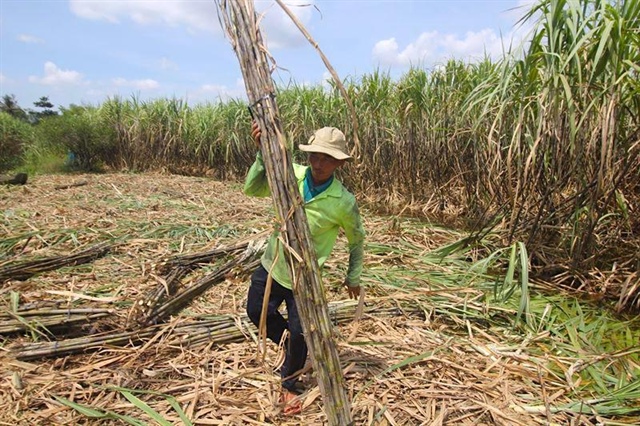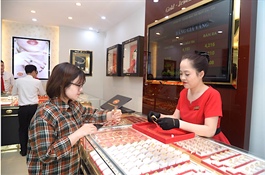Vietnam maintains in force anti-dumping duty on sugar from Thailand
Vietnam maintains in force anti-dumping duty on sugar from Thailand
The move aims to ensure a fair and competitive environment for Vietnam’s sugar industry.
Vietnam will keep in force anti-dumping and anti-subsidy duties of 47.64% for another five years on Thai cane sugar products, which are imported into Vietnam through Cambodia, Indonesia, Laos, Malaysia, and Myanmar.

A Vietnamese farmer harvests sugarcane in Phung Hiep District, Hau Giang Province. Photo: Giang Lam |
The decision was made by the Ministry of Industry and Trade on August 1, based on results from its investigation in accordance with international commitments.
The ministry decided to levy an anti-dumping duty of 42.99% and a countervailing duty of 4.65%, from August 9, 2022, to June 15, 2026.
The duties will not be applied to sugar imported from the five ASEAN countries mentioned above, as long as the sugar is produced and harvested in those countries.
Previously, in May, the ministry also extended an investigation into the evasion of trade remedies for sugar products originating from Thailand for another two months to ensure that the process runs well.
Last June, the ministry slapped anti-dumping and anti-subsidy duties of 47.64% for five years on sugar originating from Thailand with the aim to ensure a fair and competitive environment for Vietnam’s sugar industry.
In 2020, Thai businesses shipped nearly 1.3 million tons of subsidized sugar to Vietnam, an increase of 330.4% against 2019. Consequently, as many as over 3,000 Vietnamese workers have lost their jobs and some 90,000 farmers have been affected, according to MoIT.
Statistics from the General Department of Vietnam Customs noted the volume of sugar imported from the five above-mentioned ASEAN countries had sharply risen from 107,600 tons in October 2020 to 527,200 tons in June 2021. Meanwhile, the import volume from Thailand has decreased by nearly 38%, from 955,500 to 595,000 tons in the period.
The Ministry of Industry and Trade said it will continue to coordinate with relevant agencies to monitor the impact of trade remedies, production situation, supply and demand, and price to take appropriate management measures.


























